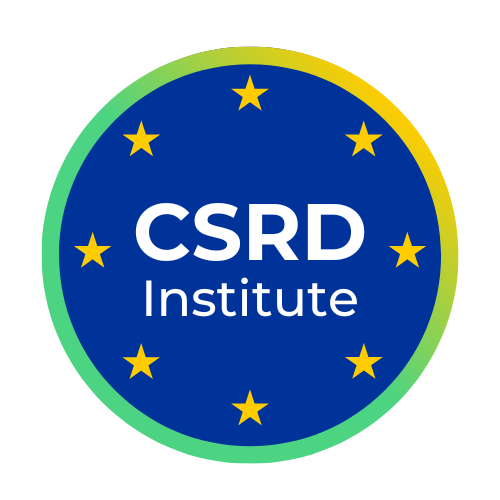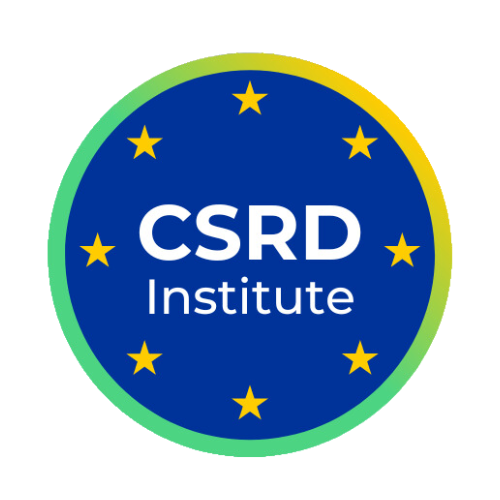Beyond Compliance:
The Value of
Being Prepared
In a fast-changing regulatory environment with shifting stakeholder expectations, the ability to anticipate, adapt, and act distinguishes organisations that comply from those that lead. Being prepared is a smart, strategic approach for your sustainability reporting efforts.
A shifting regulatory landscape
The regulatory landscape in the European Union is shifting rapidly. The Omnibus Proposal, aimed at simplifying sustainability-related obligations, is creating both opportunity and complexity across the reporting landscape.
The Omnibus proposes changes to a wide range of key reporting frameworks such as the Corporate Sustainability Reporting Directive (CSRD), including the European Sustainability Reporting Standards (ESRS), placing a growing emphasis on the Voluntary Sustainability Reporting Standard for SMEs (VSME).
Why it's challenging
-
Evolving scope and deadlines
- On 26 February 2025, the Omnibus I Proposal targeted major changes to CSRD, CSDDD, and the EU Taxonomy.
- The “Stop-the-Clock” Directive, approved on 3 April 2025, delayed CSRD reporting deadlines for certain companies by two years, and CSDDD transposition by one year.
- A compromise scope (1,000 employees / €450m turnover) has been discussed, but the European Parliament rejected fast-tracking the process on 22 October 2025, leaving negotiations ongoing.
- Final decisions and amendments are expected before the end of 2025.
-
Complex standards and double materiality
The ESRS require organisations to assess double materiality, which is both their impact on sustainability (inside-out) and how sustainability affects their business (outside-in), a significant shift for many. -
Regulatory uncertainty
With the Omnibus Proposal still under debate, businesses must remain agile and responsive as timelines and requirements may shift again. -
Data and assurance demands
Higher data volumes, machine-readable formats, and data verification expectations are increasing. -
Stakeholder demands beyond compliance
Even organisations not subject to mandatory reporting are likely to face pressure from investors, banks, value-chain partners, and customers for credible ESG disclosures.
In short, you need to focus on preparing for the current standards that you are aware of, while also being ready for any future changes, simplifications, or expansions in scope that you may not yet anticipate. This dual approach is essential, which is why preparedness is so important.
Key dates in November 2025
For those tracking developments in the EU sustainability-reporting ecosystem, here are key dates to mark in your calendar:
- 11-13 November 2025: the Omnibus will return to the next plenary session for a full vote. A new deadline for amendments will be set, potentially involving new amendments to the Anticipated Final Position on the CSRD and CSDDD.
- Mid-November 2025 (approx.): the “quick-fix” delegated act for wave-1 companies is expected to be published in the Official Journal of the EU, easing sustainability reporting obligations for FY2025/26.
- 30 November 2025: EFRAG is required to deliver its technical advice on the revision of ESRS under the Omnibus package.
The VSME standard: a viable option for organisations unsure of their reporting obligations
Not all organisations are currently required to comply with the CSRD, but many feel pressure from value chains, banks, and investors to disclose ESG information. This makes the Voluntary Sustainability Reporting Standard for SMEs (VSME) a practical alternative for such organisations.
What is the VSME Standard and why it matters
- The VSME Standard was formally approved by the European Commission on 30 July 2025. Developed by EFRAG, the VSME was designed to serve SMEs that are not (yet) covered by CSRD.
- Aims to reduce the burden of reporting while still enabling credible ESG disclosure for smaller entities.
- Modular structure: Basic Module (core disclosures) and Comprehensive Module (for deeper disclosure).
- Voluntary framework: it gives organisations flexibility to adopt a proportionate approach rather than full CSRD compliance immediately.
- Serves as a strategic pathway: even if you’re not mandated today, starting with the VSME means your data, processes and governance are already aligned if your scope changes (or if your larger partners require ESG information).
Why sustainability professionals should consider the VSME
- Proactive reporting: If your organisation is unsure whether it falls under the CSRD or when it might do so, the VSME provides a practical first step for proactive reporting.
- Keeps you ahead of stakeholder disclosure expectations: banks, customers, and trading partners increasingly seek comparable ESG data even from smaller entities.
- Builds internal readiness: data collection, governance, quality controls, and narrative development are all skills that are transferrable to the CSRD.
- Minimises risk: Choosing “no action” because you think you’re not in scope could leave you exposed if regulations or thresholds change (as they are doing).
Essential steps to prepare for effective sustainability reporting
Here are some key actions to help you prepare for effective sustainability reporting:
- Align your governance and internal teams: ensure that your governance and internal teams, including sustainability, finance, compliance, IT and data functions, are fully aligned and collaborating.
- Establish data systems and workflows now: begin early so that you can build a solid foundation with clear data-flows, roles and responsibilities, and governance and controls, long before the pressure of a reporting deadline hits.
- Build your sustainability narrative and disclosures as part of your core business story, not as an after-thought.
- Stay alert and agile: treat new regulatory updates as signals of change, not distractions.
- Choose training and development: ensure that you are informed, credible and ready.
Find out more about our free 1-hour CSRD and VSME courses to help bring you and your team up to speed.
The value of being prepared (beyond compliance)
Being well-prepared for regulatory change in sustainability reporting doesn’t just mean avoiding fines or reputational damage.
By proactively building robust frameworks, thoroughly understanding new standards and integrating them into your overall business strategy, you can transform compliance into a strategic advantage.
Rather than viewing new obligations as a burden, you can reframe them as catalysts for meaningful operational improvement, competitive differentiation and long-term resilience.
Build reporting readiness with CSRD Institute training
At the CSRD Institute, we are dedicated to offering the most current and comprehensive education on the Corporate Sustainability Reporting Directive (CSRD) and the Voluntary Sustainability Reporting Standard for SMEs (VSME). We continually monitor developments so that our courses stay aligned with evolving standards and market needs.
Our certification courses in the CSRD and the VSME Standard are designed to meet the needs of individuals at all levels, from beginners who are just starting to learn about sustainability reporting to advanced professionals seeking to deepen their expertise.
Benefits of CSRD Institute certification courses
- Regulatory literacy: Understand the intent, scope and timing of the CSRD, ESRS, VSME and other key EU regulatory frameworks.
- Practical skills: Learn how to operationalise double materiality, gather and validate data, structure disclosures, and integrate sustainability reporting into your organisation’s governance.
- Agility and adaptability: Courses are updated to reflect emerging regulatory changes, the proposed EU Omnibus changes, the “Stop-the-clock” directive, the “Quick-Fix” Delegated Act for Wave One Companies, and the ESRS simplification.
- Strategic mindset: Move from “we must report this” to “we leverage reporting as a value driver” making sustainability reporting part of business planning, risk management, and stakeholder engagement.
- Credentials and recognition: All CSRD Institute training courses are CPD-accredited.
By enrolling in a CSRD or VSME certification course, you are not only preparing for compliance, you are positioning both yourself and your organisation to be ready, agile and credible.
Not sure where to start? Register for one of our free courses here and start learning about the CSRD and the VSME standard today.

Copyright © 2025
